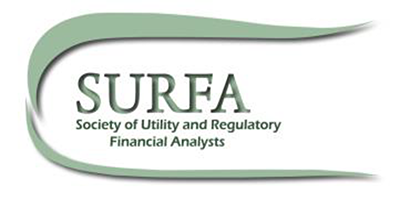NARUC Utility Rate SchoolComprehensive hands-on training on the basics of the public utility ratemaking process sponsored by the NARUC Committee on Water and featuring group work on a mock water utility rate case. Space is limited.Rate School 2018 Flyer39th WESTERN SCHOOL
When:May 13-18, 2018
Where:Marriott Coronado Island, San Diego, California Hotel reservations may be made through the Coronado Island Marriott and Spa. Last day to book hotel 4/20/18 (Group rate $199.50/night)
46th EASTERN SCHOOL
When:October 22-26, 2018
Where:Marriott Sandkey, Clearwater Beach, Florida Hotel reservations may be made through the Clearwater Beach Marriott Suites. Last day to book hotel 10/02/18 (Group rate $166/night)
About the programThe NARUC Utility Rate School is held twice a year, in the fall (Eastern – Clearwater Beach, FL) and the spring (Western – San Diego, CA). The basics of utility ratemaking are presented by program faculty members from state public utility commissions, utility companies, and the legal, consulting, and academic communities. Participants work in teams to learn the fundamentals of establishing revenue requirements and rate setting by working through a hypothetical “mock” water utility rate case. The program also provides insight into current issues affecting the water and other utility industries. By featuring a carefully crafted mock rate case and a team approach, Rate School provides an intensive “hands-on” learning experience appropriate for anyone involved with utility rate setting. Rate School is relevant to anyone interested and involved in utility ratemaking. Specialists across all sectors – water, natural gas, and electricity – have actively participated and benefited from the School and are encouraged to attend. Although the program centers on a mock water rate case, the emphasis is actually on the core principles, concepts, and tools of rate-base/rate-of-return regulation and ratemaking—particularly accounting, finance, and economic analysis. Water and energy demonstrate technical distinctions, they have more in common than not when it comes to ratemaking. What are revenue requirements? What is reported on a balance sheet and income statement? What is included in the ratebase? How is the rate of return determined? Balance sheets, income statements, taxes, depreciation, capital structure, cost of capital, cost allocation, and rate design are common considerations for all regulated utilities. Rate School also includes a special session on energy issues. Learn the fundamentals of the utility rate setting process, including how to establish revenue requirements and the basic concepts and methods of rate design. The NARUC Utility Rate School has been sponsored by the Committee on Water of the National Association of Regulatory Utility Commissioners (NARUC) since 1972. The Institute of Public Utilities at Michigan State University provides administrative support to the School. Check out photos from previous years here! Topics covered
Return to rate schoolNARUC and IPU welcome lifelong learners, including former attendees. The Rate School program builds on a tradition of knowledge and experience while incorporating current regulatory issues and methods, providing a great opportunity to reflect and refresh. You may have attended Rate School in the past, but the mock rate case and materials are continuously updated. As your career evolves, you will welcome fresh insights into familiar concepts. And keep in mind that Rate School is eligible for continuing education credits as well as IPU’s new Certificate of Continuing Regulatory Education, details of which are available at www.ipu.msu.edu. Program learning objectives
More informationProgram Level: The program is classified as “basic” and accessible to new personnel working in the regulatory policy community. Program Prerequisites: No prerequisites apply to this program. Preparatory resources are available on the IPU website on the URS program page as well as the IPU research page. Program Delivery: The program delivery method is classified as a “group-live” event and consists primarily of lectures by experienced professionals, including examples and opportunity for discussion. Active learning and participation are encouraged. Instructors are accessible for individual assistance throughout the program. Cancellation and Refunds: Cancellations are generally accepted until one week before the program. Substitutions are accepted at any time. Program fees may be applied toward a future program or refunded. Comments and Complaints: IPU welcomes program input and feedback. Participants will be asked to complete program evaluation forms. Comments and complaints about the program may be directed to IPU Director, Dr. Janice A. Beecher ([email protected]) or IPU Program Coordinator. NASBA National Registry Statement: The Institute of Public Utilities is registered with the National Association of State Boards of Accountancy (NASBA) as a sponsor of continuing professional education on the National Registry of CPE Sponsors. State Boards of Accountancy have the final authority on the acceptance of individual course for CPE credit. Complaints regarding registered sponsors may be submitted to the National Registry of CPE Sponsors through its website: www.nasbaregistry.org. This program is relevant to the following NASBA fields of study: administrative practice, accounting and auditing (corporate and governmental), business law, economics, finance, taxes, regulatory ethics, and specialized knowledge and applications. TestimonialsDon’t just take our word for it, hear what past Rate School attendees think about the program.
|
